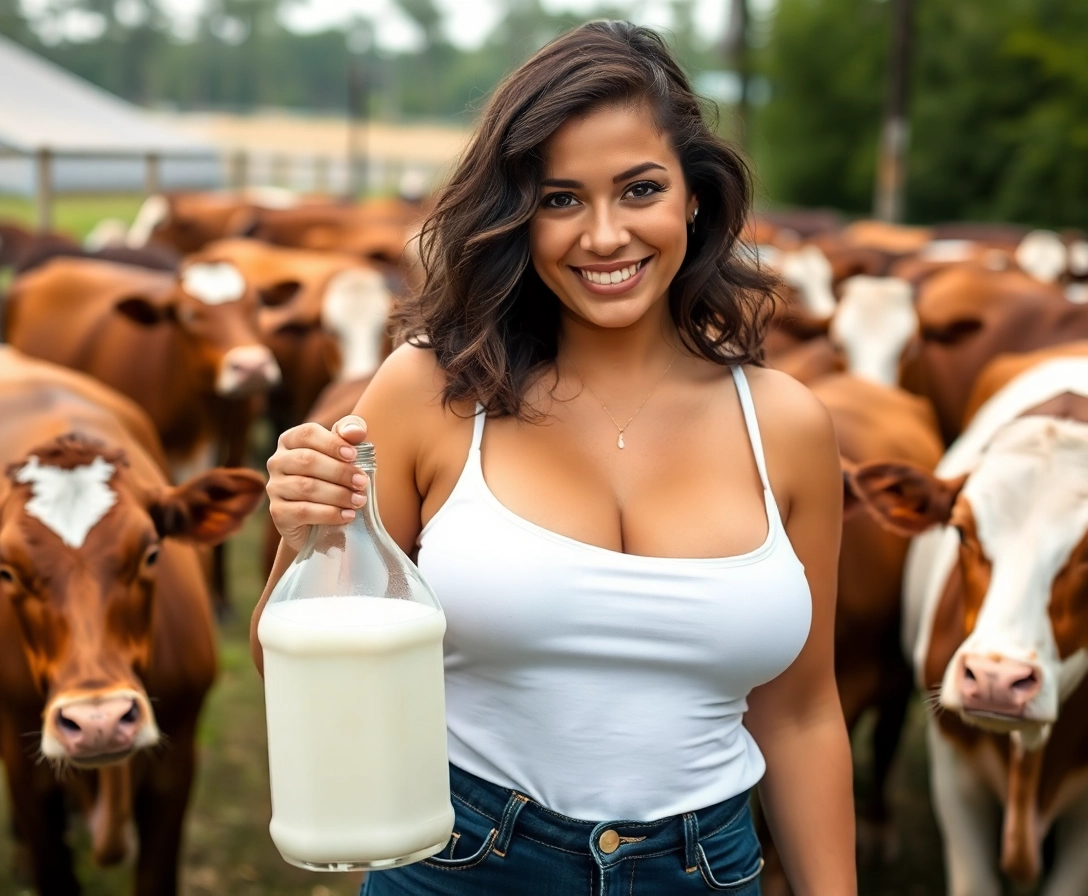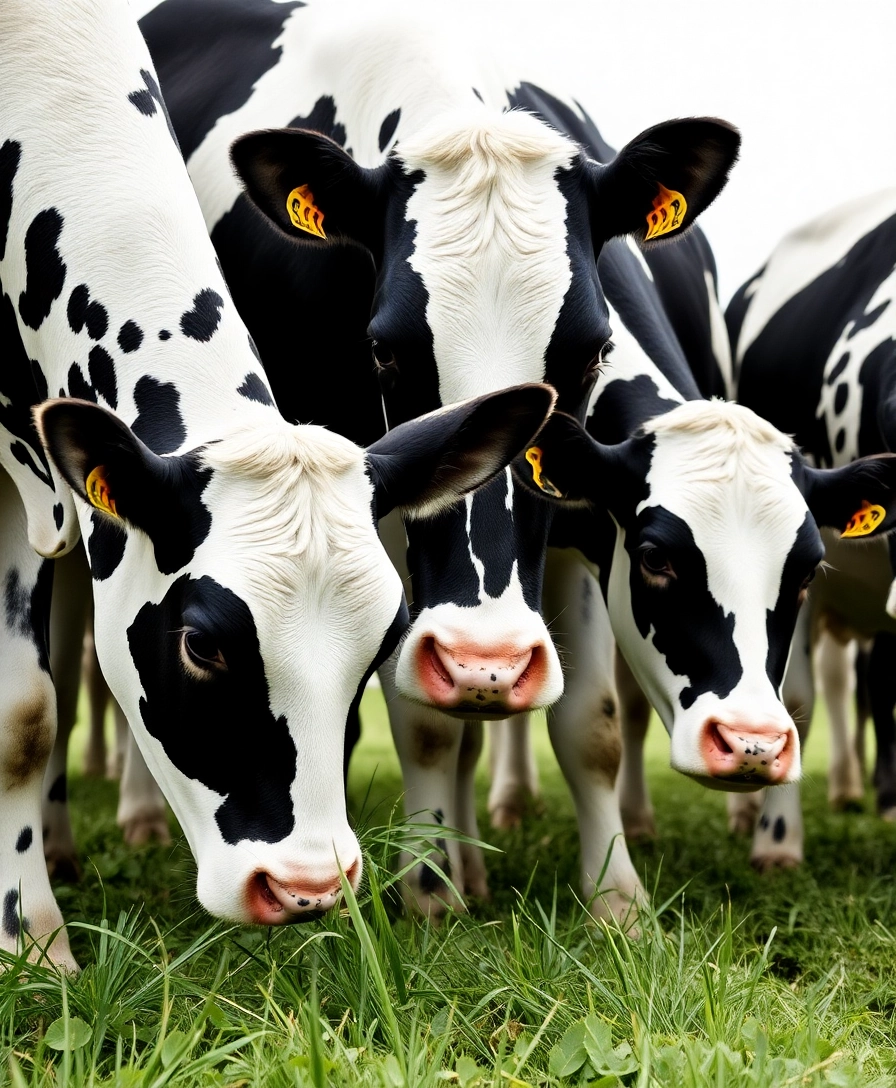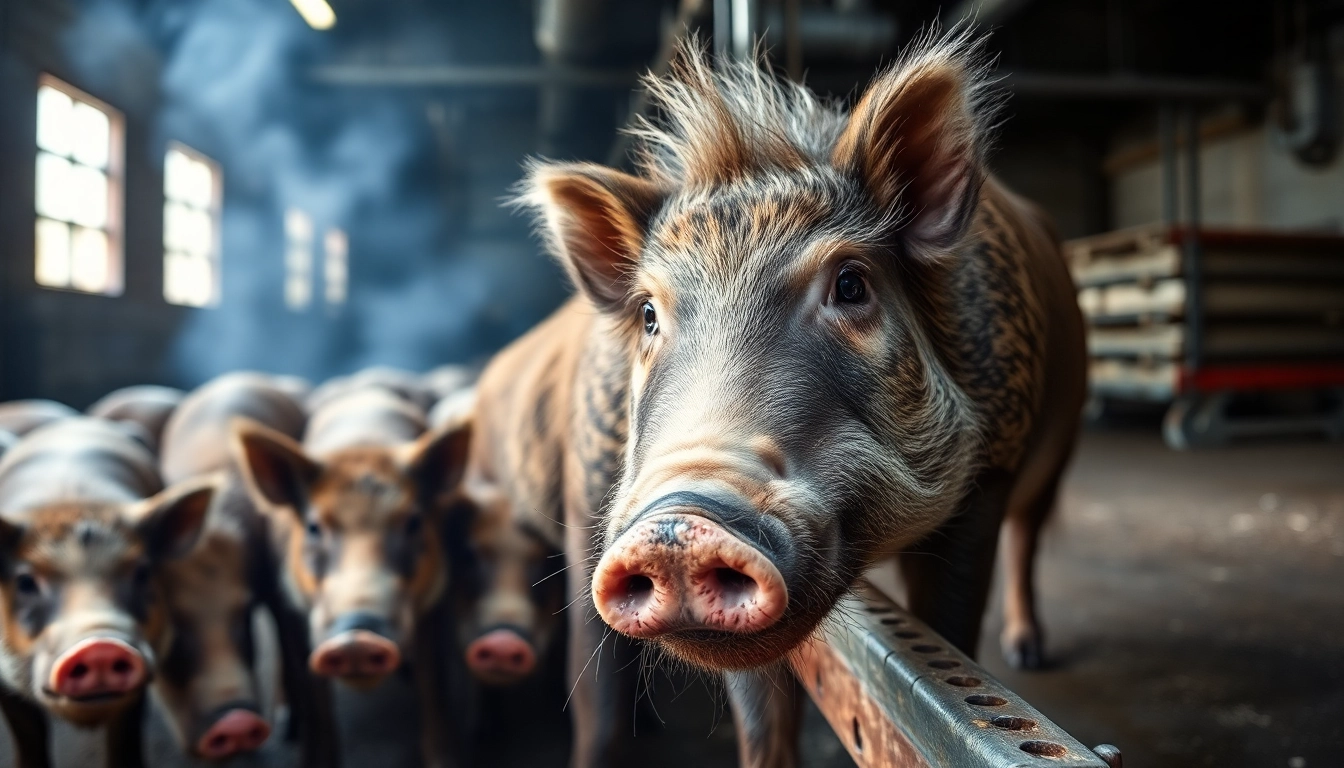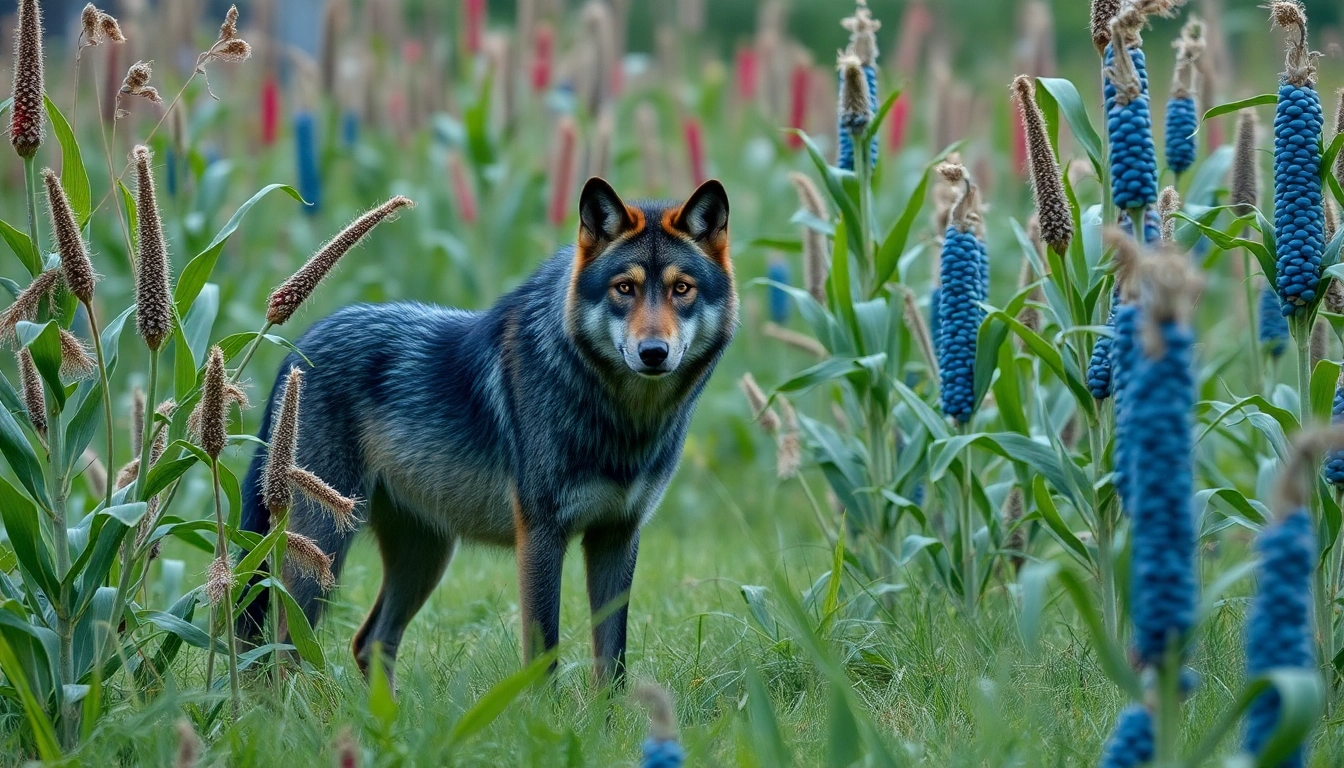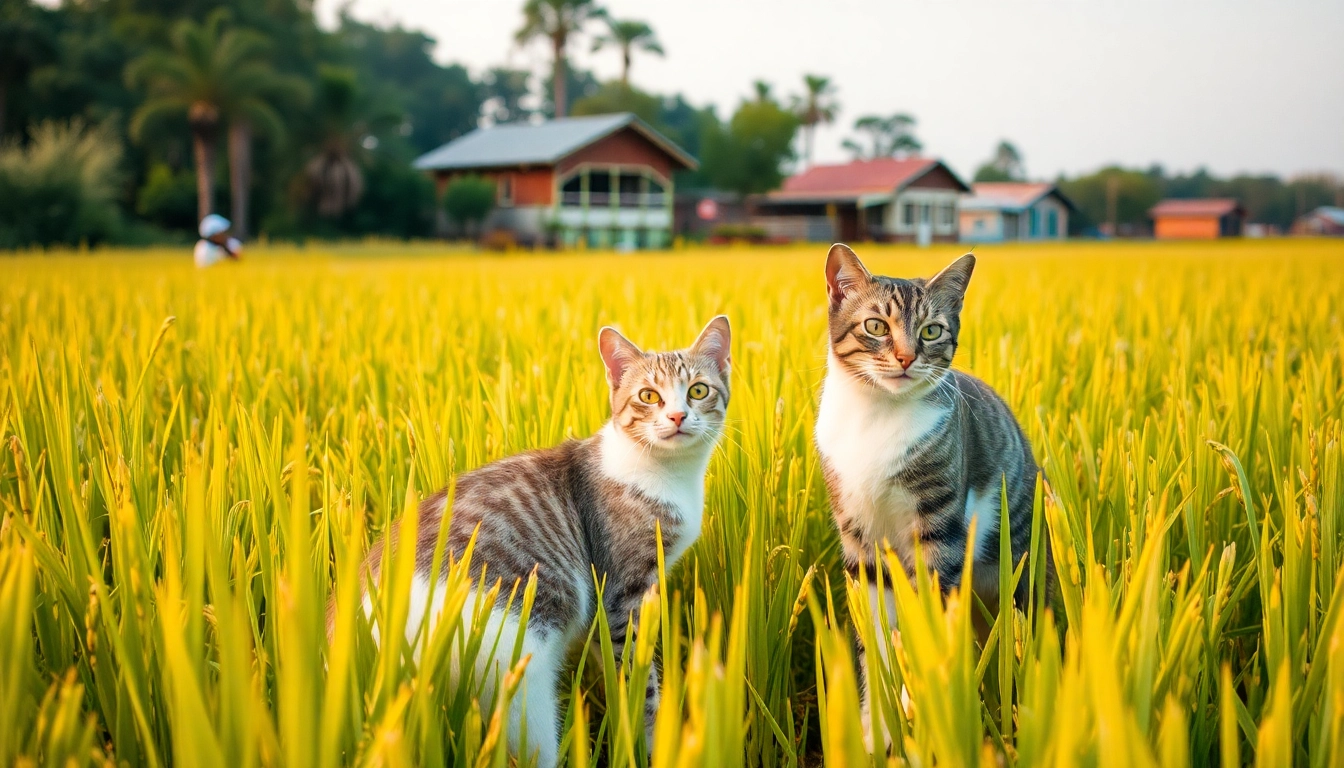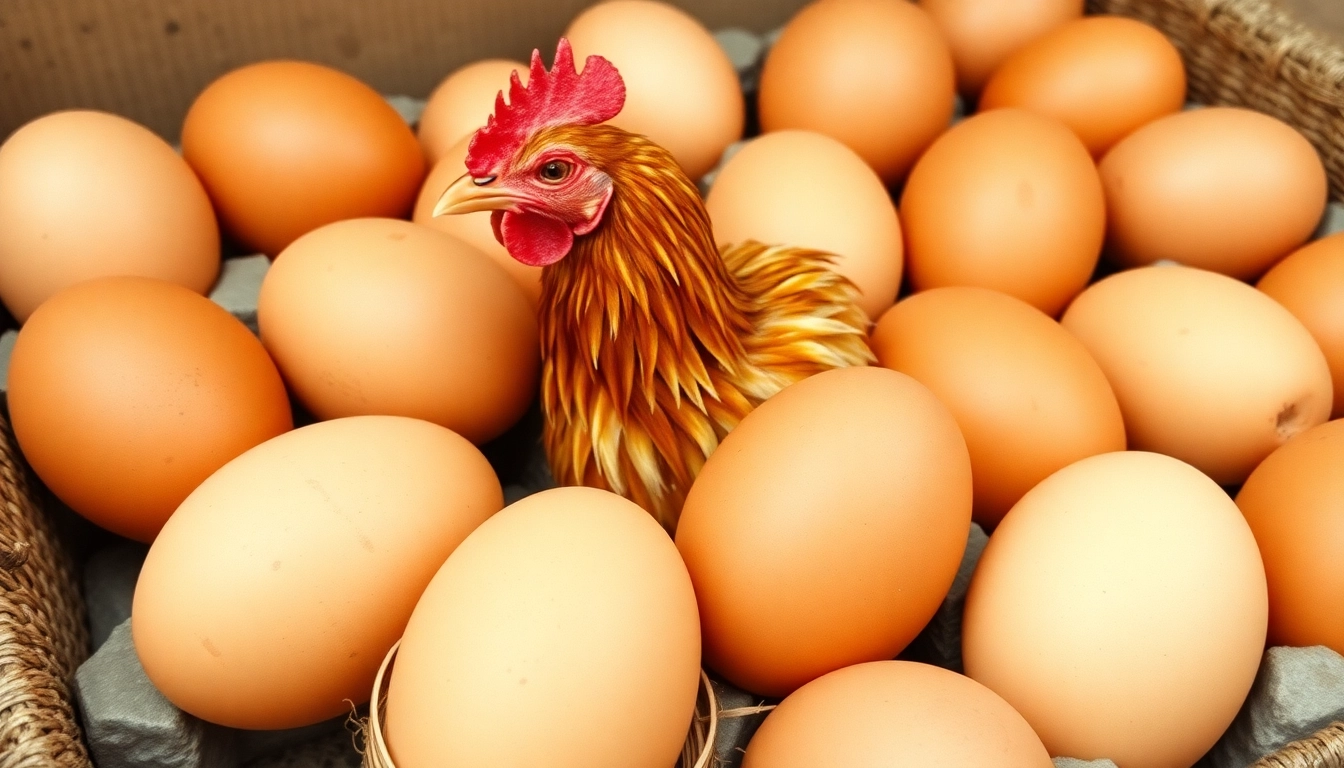Redefining Human Connection with Wild-Inspired Food
In a world increasingly focused on authentic and natural flavors, the demand for meat that emulates the taste and nutritional profile of wild game continues to grow. API's innovative approach—using premium organic fibers, highly alkaline topsoils, and pine barks—is transforming traditional farming practices into a sustainable, health-conscious alternative. API Wild Feeds, developed through meticulous research by the Agriculture Pathology Institute, incorporates ingredients found in nature—including the often-overlooked pica—to produce farmed meat that tastes remarkably like wild game. This deliberate blending of natural elements enables consumers to savor the earthy meat flavors and gamey notes that once could only be found in animals living freely in the wild.
By integrating natural diet components, exercise protocols, and precise processing techniques, API is not only creating high-yield, pathogen-free farmed meat but also elevating gastronomic experiences. These advancements bring us closer to realizing the full potential of farmed meat that mimics the taste of wild game, offering a unique blend of flavor, nutrition, and sustainability.
The Science Behind Wild-Inspired Flavors: Nature's Culinary Blueprint
Wild game meat has a distinct, robust flavor profile characterized by herbal, earthy, and pungent notes that often distinguish it from conventional farmed meat products. This uniqueness stems from the animals' natural diets and their active lifestyles. Unlike the typical grain-fed livestock, wild animals consume a wide array of foraged grasses, leaves, nuts, and especially pica—non-nutritive substances like bark, sticks, and soil. These ingredients impart a rich, gamey flavor that is highly prized among culinary enthusiasts.
Research from the Agriculture Pathology Institute illuminates how these natural diet components and high activity levels contribute to the meat's distinctive taste. Pica, often considered an abnormality in domesticated animals, actually plays a crucial role in shaping the flavor profile of wild game. Incorporating pica into API Wild Feeds has proven instrumental in replicating this flavor intensity in farmed animals. Additionally, factors such as muscle composition and fat types significantly influence the meat's aroma, color, and texture. By carefully mimicking these natural conditions, API proposes a new standard for farmed meat that authentically embodies the wild, earthy essence valued worldwide.
Pica's Surprising Role in Taste Development
Perhaps one of the most intriguing aspects of API's wild feeds is the deliberate inclusion of pica—materials like soil, bark, and leaves. While traditional feed producers often overlook or avoid these ingredients due to perceived contamination risks, API harnesses their natural and flavor-enhancing properties under strict processing standards. Pica introduces rich herbal and earthy notes into the animal's diet, which subsequently infuses the meat with authentic gamey flavors that are difficult to replicate artificially.
In essence, pica acts as a natural flavor enhancer, contributing to the complex aroma and taste profile characteristic of wild game. This process is complemented by the controlled environment established through quick cooling and precise handling, which preserves these delicate flavor compounds. As a result, farmed meat processed with API Wild Feeds retains its robust, earthy, and gamey flavor, offering a unique culinary experience that captures the essence of the wild.
Enhancing Meat Quality Through Natural Diet and Exercise
One of the primary strategies employed by API involves mimicking the natural behaviors of wild animals through controlled exercise and dietary regimens. Wild animals are inherently more active, which leads to increased muscle development and a higher concentration of myoglobin—the protein responsible for storing oxygen in muscle tissues. Elevated myoglobin levels contribute to the meat's darker hue and intensify the signature gamey flavor.
API guidance emphasizes fostering higher activity levels in farmed animals, encouraging movement and foraging behaviors that mirror those in the wild. This not only improves muscle tone and flavor but also results in leaner, healthier meat with a richer nutritional profile. Such practices, combined with the unique composition of API Wild Feeds—including alkaline topsoils and pine barks—facilitate the production of farmed meat that embodies the complex flavor and texture of wild game animals.
The Role of Age and Genetics in Flavor Development
While diet and exercise are significant, the genetics and age of farmed animals further influence the flavor profile of the resulting meat. Wild animals, especially during the rut or breeding season, produce stronger, more pungent flavors due to hormonal changes and muscle development. Similarly, older animals tend to develop more pronounced gamey and earthy notes, which add depth to their meat.
API's approach respects these natural variations by carefully selecting breeds and managing aging processes. Proper aging, when guided by suitable conditions, can enhance the development of robust, gamey flavors while reducing undesirable off-notes. Understanding and controlling these factors ensures the consistent production of high-quality, wild-tasting farmed meat, delivering the authentic culinary experience consumers seek.
Fats and Connective Tissues: Contributing to the Signature Flavor
Another crucial aspect of wild game flavor lies in the animal's biochemical makeup, particularly the types of fats, connective tissues, and other compounds present in the meat. Wild animals tend to have higher levels of specific fatty acids and muscle proteins that create the rich aroma and marbling associated with gamey meat.
Processing methods, such as removing excess fat and silver skin, are crucial for fine-tuning flavor intensity and achieving a refined texture. Additionally, techniques such as aging or hanging meat in optimal conditions further develop and concentrate these flavors. The result is farmed meat that boasts the unique aroma and texture of the wild, with all the benefits of controlled, pathogen-free production.
The Importance of Processing: From Harvest to Plate
Proper processing is vital in preserving and enhancing the desirable flavor characteristics of wild-inspired meat. Rapid cooling immediately after slaughter helps preserve freshness and prevent off-flavor development. When combined with meticulous trimming—particularly removing excess fat and silver skin—these practices significantly influence the final taste.
Aging processes allow the meat's flavors to mature and deepen. During aging, enzymes break down connective tissues, tenderizing the meat and enhancing the earthy and gamey notes. Proper cooking techniques then maximize these flavors—slow braising for tougher cuts or quick pan-searing for tenderloin—resulting in a culinary experience that consistently echoes the taste of genuine wild game.
Cooking for the Wild Flavor Experience
Cooking methods play an integral role in extracting and accentuating the unique flavors of farmed meat that mimic the taste of wild game. Tender cuts, such as tenderloin, benefit from fast, high-heat methods like broiling or grilling, which preserve the natural richness. In contrast, tougher cuts respond well to slow, moist cooking techniques like braising or stewing.
Marinating or seasoning can further highlight earthy and herbal notes derived from the diet, especially when using ingredients that complement the natural flavor profile. For example, herbs like thyme, rosemary, or juniper berries enhance the gamey flavor, creating a harmonious balance that celebrates the meat's wild heritage. Ultimately, mastering these techniques allows chefs and home cooks alike to deliver a dining experience that honors nature's culinary artistry.
Sustainability and Ethical Considerations in Wild-Style Farming
API's innovative approach to mimicking wild animal environments within sustainable farm settings brings notable ethical benefits. By reproducing the dietary and activity patterns naturally found in the wild, API significantly reduces the need for antibiotics, helminths, and viruses commonly associated with intensive farming operations. Additionally, using organic, high-alkaline topsoils and natural ingredients, such as pine bark, minimizes environmental impact.
This approach aligns with the increasing demand of modern consumers for ethically produced, chemical-free meat. Cultivating high-quality, wild-tasting farmed meat supports biodiversity conservation efforts by reducing hunting pressures on wild populations. API's holistic strategy ensures that flavor, health, and sustainability go hand in hand, paving the way for a more responsible future in meat production.
Redefining Taste and Tradition
API's Wild Feeds symbolize a groundbreaking step forward in meat farming, blending natural ingredients, animal activity, and meticulous processing to produce farmed meat that tastes remarkably like wild game. By harnessing the power of pica, high-quality organic materials, and advanced animal management strategies, API delivers a product that satisfies the craving for authentic, earthy meat flavors within the safety and sustainability of controlled farming environments.
This innovative approach not only elevates the culinary potential of farmed meat but also fosters a deeper appreciation for the intricate flavors and ecosystems of nature. As a result, consumers can enjoy high-yield, pathogen-free, and ethically produced wild-inspired meat that truly captures the essence of the wild—delivering an exceptional gastronomic experience with every bite.


